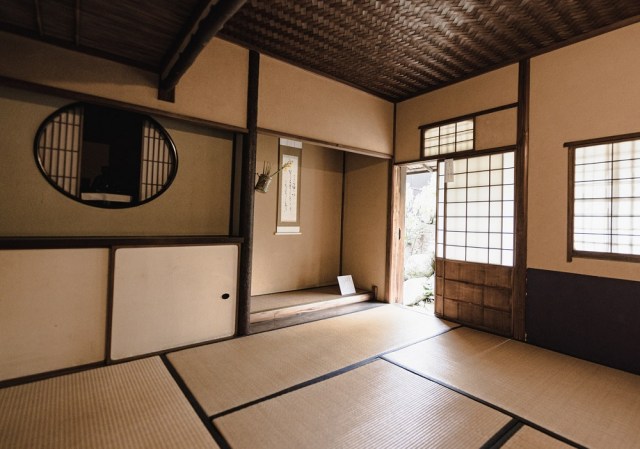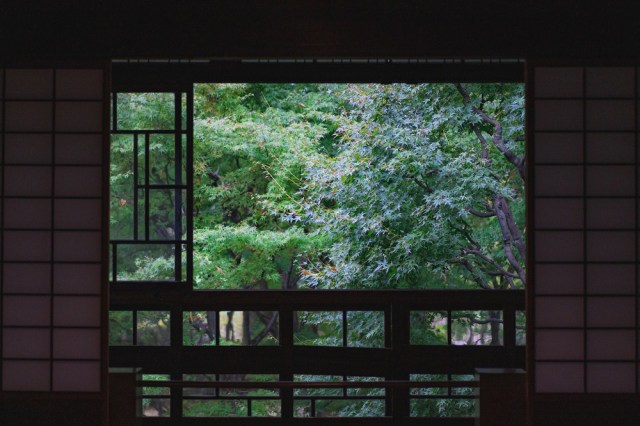
First-of-its-kind tax would bring in nearly one billion yen, but government says it’s not about the money.
Temples and shrines are the first things that spring to mind when most people think of Kyoto, and in some parts of the city it feels like there’s a beautiful structure of historical significance on almost every block. But something else Kyoto has a lot of is unoccupied houses.
According to the Kyoto municipal government, there are around 15,000 homes in the city with no regular resident, and it looks like their owners are going to have to start paying a special “empty home tax.” The tax doesn’t just target abandoned or completely unused detached houses, either, as people who own vacation homes in the city, including units in high-rise condominiums, will be required to pay the tax as well. The annual tax will be based on the value of the empty home and its specific location but is expected to be about half of the standard homeowner/property taxes, which must be paid in addition to the new empty home tax (i.e. owners of unoccupied homes would see their tax bill rise by about 50 percent).
In total, the government estimates that the empty home tax, under current conditions, would bring in nearly one billion yen (US$7.4 million) in tax revenue per year. However, city says its real goal isn’t to fill the city’s coffers, but to help with its housing crunch.
The official name of the “empty home tax” is the “unoccupied residence utilization promotion tax.” While Kyoto is most famous to non-residents as a symbol of traditional tranquility, it’s also a major modern city with schools and jobs that people need access to, and housing shortages are difficult to address in a town where so much land is protected from residential development for historical preservation purposes. The hope is that the tax will encourage people who own homes in Kyoto that they’re not regularly using to reconsider whether they really want to hang on to them, with the assumption that at least some will decide to sell the property off so that someone else can move in full-time.
The proposed tax, which would be the first of its kind in Japan, has reportedly met with approval from Japan’s Ministry for Internal Affairs and Communications, but won’t be going into place until the spring of 2026 at the earliest, so empty home owners still have some time to think over what they want to do. In addition, homes of historical merit, as well as homes below a certain value, will be exempt from the tax.
As one of the most popular travel destinations in the country, Kyoto no doubt has a particularly large number of privately owned vacation homes. Unoccupied homes as a whole, though, actually aren’t all that uncommon in Japan. Neighborhood homeowners’ associations aren’t as strict as they are in many other countries about keeping up a home’s outward appearance, vandalism rates are low, and the homeless community generally refrains from breaking into buildings for squatting, so you can leave a house sitting for years with no concerns beyond keeping some paperwork and property taxes up to date.
Because of that, it’s not shockingly unusual for someone to end up with an unoccupied home after, say, being the last in their family to move away the countryside to the big city, or to inherit one from an elderly relative. Ideas of “Maybe I’ll go back and fix it up someday” or “I should talk to somebody local about selling it” get put on the back burner, and the longer it’s been since anyone’s lived full-time in the house, the bigger those projects start to feel, until sometimes years have passed without anyone living in the home. So it’s likely that other cities in Japan will be keeping an eye ono Kyoto’s empty home tax, and possibly implementing their own in the future.
Source: Kyodo (1, 2)
Top image: Pakutaso
Insert images: Pakutaso
● Want to hear about SoraNews24’s latest articles as soon as they’re published? Follow us on Facebook and Twitter!
Follow Casey on Twitter, where he still remember being shocked by seeing oden at a 7-Eleven in Kyoto on his very first morning in Japan.


 Kyoto may be getting more modern, tall buildings as city relaxes development limits
Kyoto may be getting more modern, tall buildings as city relaxes development limits Bored with hotels? Abenomics bringing new lodging options for foreign tourists in Japan
Bored with hotels? Abenomics bringing new lodging options for foreign tourists in Japan Supermarket throws away bench because of sales tax hike, angers many
Supermarket throws away bench because of sales tax hike, angers many Osaka man wipes away millions in owed taxes by deducting losing horse race tickets
Osaka man wipes away millions in owed taxes by deducting losing horse race tickets ANA to offer Japan domestic air pass with multiple flights and unlimited accommodations provided
ANA to offer Japan domestic air pass with multiple flights and unlimited accommodations provided Foreigner’s request for help in Tokyo makes us sad for the state of society
Foreigner’s request for help in Tokyo makes us sad for the state of society Seaside scenery, history, and so many desserts on Yokohama’s Akai Kutsu【Japan Loop Buses】
Seaside scenery, history, and so many desserts on Yokohama’s Akai Kutsu【Japan Loop Buses】 Smash Bros. director Sakurai stabs Kirby in the face, has delicious justification for it
Smash Bros. director Sakurai stabs Kirby in the face, has delicious justification for it Japanese city loses residents’ personal data, which was on paper being transported on a windy day
Japanese city loses residents’ personal data, which was on paper being transported on a windy day Should you add tartar sauce to Japanese curry rice? CoCo Ichi makes diners an unusual offer
Should you add tartar sauce to Japanese curry rice? CoCo Ichi makes diners an unusual offer Japan’s summertime towelket pillowcases are even better with the addition of Ghibli stars【Photos】
Japan’s summertime towelket pillowcases are even better with the addition of Ghibli stars【Photos】 Ultra-realistic cat latte art blows us away, puts us off our coffee
Ultra-realistic cat latte art blows us away, puts us off our coffee Ghibli Park now selling “Grilled Frogs” from food cart in Valley of Witches
Ghibli Park now selling “Grilled Frogs” from food cart in Valley of Witches Japanese ramen restaurants under pressure from new yen banknotes
Japanese ramen restaurants under pressure from new yen banknotes Ridesharing services legalized for Tokyo and Kyoto, but does this change anything?
Ridesharing services legalized for Tokyo and Kyoto, but does this change anything? McDonald’s new Happy Meals offer up cute and practical Sanrio lifestyle goods
McDonald’s new Happy Meals offer up cute and practical Sanrio lifestyle goods French Fries Bread in Tokyo’s Shibuya becomes a hit on social media
French Fries Bread in Tokyo’s Shibuya becomes a hit on social media Studio Ghibli releases new action figures featuring Nausicaä of the Valley of the Wind characters
Studio Ghibli releases new action figures featuring Nausicaä of the Valley of the Wind characters Red light district sushi restaurant in Tokyo shows us just how wrong we were about it
Red light district sushi restaurant in Tokyo shows us just how wrong we were about it New private rooms on Tokaido Shinkansen change the way we travel from Tokyo to Kyoto
New private rooms on Tokaido Shinkansen change the way we travel from Tokyo to Kyoto Tokyo Tsukiji fish market site to be redeveloped with 50,000-seat stadium, hotel, shopping center
Tokyo Tsukiji fish market site to be redeveloped with 50,000-seat stadium, hotel, shopping center Beautiful Ghibli sealing wax kits let you create accessories and elegant letter decorations【Pics】
Beautiful Ghibli sealing wax kits let you create accessories and elegant letter decorations【Pics】 Studio Ghibli releases Kiki’s Delivery Service chocolate cake pouches in Japan
Studio Ghibli releases Kiki’s Delivery Service chocolate cake pouches in Japan New definition of “Japanese whiskey” goes into effect to prevent fakes from fooling overseas buyers
New definition of “Japanese whiskey” goes into effect to prevent fakes from fooling overseas buyers Our Japanese reporter visits Costco in the U.S., finds super American and very Japanese things
Our Japanese reporter visits Costco in the U.S., finds super American and very Japanese things All-you-can-drink Starbucks and amazing views part of Tokyo’s new 170 meter-high sky lounge
All-you-can-drink Starbucks and amazing views part of Tokyo’s new 170 meter-high sky lounge More foreign tourists than ever before in history visited Japan last month
More foreign tourists than ever before in history visited Japan last month New Pokémon cakes let you eat your way through Pikachu and all the Eevee evolutions
New Pokémon cakes let you eat your way through Pikachu and all the Eevee evolutions Disney princesses get official manga makeovers for Manga Princess Cafe opening in Tokyo
Disney princesses get official manga makeovers for Manga Princess Cafe opening in Tokyo Sales of Japan’s most convenient train ticket/shopping payment cards suspended indefinitely
Sales of Japan’s most convenient train ticket/shopping payment cards suspended indefinitely Sold-out Studio Ghibli desktop humidifiers are back so Totoro can help you through the dry season
Sold-out Studio Ghibli desktop humidifiers are back so Totoro can help you through the dry season Japanese government to make first change to romanization spelling rules since the 1950s
Japanese government to make first change to romanization spelling rules since the 1950s Ghibli founders Toshio Suzuki and Hayao Miyazaki contribute to Japanese whisky Totoro label design
Ghibli founders Toshio Suzuki and Hayao Miyazaki contribute to Japanese whisky Totoro label design Doraemon found buried at sea as scene from 1993 anime becomes real life【Photos】
Doraemon found buried at sea as scene from 1993 anime becomes real life【Photos】 Tokyo’s most famous Starbucks is closed
Tokyo’s most famous Starbucks is closed One Piece characters’ nationalities revealed, but fans have mixed opinions
One Piece characters’ nationalities revealed, but fans have mixed opinions We asked a Uniqlo employee what four things we should buy and their suggestions didn’t disappoint
We asked a Uniqlo employee what four things we should buy and their suggestions didn’t disappoint Princesses, fruits, and blacksmiths: Study reveals the 30 most unusual family names in Japan
Princesses, fruits, and blacksmiths: Study reveals the 30 most unusual family names in Japan World Heritage Site in Gunma struggling to crowdfund repair costs
World Heritage Site in Gunma struggling to crowdfund repair costs Tokyo ward will give cosplay experiences as character of your choice in exchange for tax donation
Tokyo ward will give cosplay experiences as character of your choice in exchange for tax donation Kyoto admits to paying celebrities 500,000 yen per tweet to talk about how great the city is
Kyoto admits to paying celebrities 500,000 yen per tweet to talk about how great the city is Japanese prefectural governor wants foreign tourists to pay special extra fee
Japanese prefectural governor wants foreign tourists to pay special extra fee Asakusa’s Sensoji temple shocks store owners with sudden 16-fold rent increase in shopping arcade
Asakusa’s Sensoji temple shocks store owners with sudden 16-fold rent increase in shopping arcade One thing NOT to do in Kyoto if you’re headed there during the vacation period
One thing NOT to do in Kyoto if you’re headed there during the vacation period Japanese government worried young adults aren’t drinking enough alcohol
Japanese government worried young adults aren’t drinking enough alcohol A life-sized bust of Kenshiro from Fist of the North Star from Osaka is tax deductible!
A life-sized bust of Kenshiro from Fist of the North Star from Osaka is tax deductible! Japanese city offering authentic handcrafted swords in exchange for “tax” payments
Japanese city offering authentic handcrafted swords in exchange for “tax” payments Japanese online retailers looking for a change in the sales tax system before they “raise the white flag”
Japanese online retailers looking for a change in the sales tax system before they “raise the white flag” Japanese woman stumbles on the power of the infamous “gaijin seat” phenomenon during flight
Japanese woman stumbles on the power of the infamous “gaijin seat” phenomenon during flight Japanese politician pushing to double price of cigarettes in Japan by start of 2020 Olympics
Japanese politician pushing to double price of cigarettes in Japan by start of 2020 Olympics Japanese travelers are avoiding Kyoto as the city’s number of foreign visitors continues to grow
Japanese travelers are avoiding Kyoto as the city’s number of foreign visitors continues to grow Personal information of everyone in Amagasaki City lost by person who passed out drunk on street
Personal information of everyone in Amagasaki City lost by person who passed out drunk on street Buying property in Japan? This mini tower house can be yours for less than $12,000
Buying property in Japan? This mini tower house can be yours for less than $12,000 Nara’s “deer cookie” rice crackers get their first price increase in 28 years
Nara’s “deer cookie” rice crackers get their first price increase in 28 years
Leave a Reply